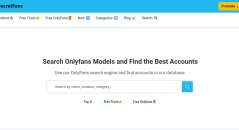In a dramatic final stretch of the TikTok acquisition saga, Subs.com and OnlyFans founder Tim Stokely and the HBAR Foundation made headlines by submitting a late-stage bid to acquire TikTok’s U.S. operations from parent company ByteDance. The bid, sent earlier this week by Stokely’s new venture Zoop and backed by Hedera’s HBAR Foundation, proposed a decentralized, creator-focused future for the viral video platform.
“Our bid for TikTok isn’t just about changing ownership,” said RJ Phillips, Zoop co-founder, “it’s about creating a new paradigm where both creators and their communities benefit directly from the value they generate.”
While financial terms of the Zoop/HBAR bid were not disclosed, insiders described it as “competitive” and supported by an undisclosed consortium of investors. The bid followed reports of ByteDance preparing for forced divestment due to U.S. national security concerns.
However, as the deadline loomed, an Oracle-led investor group ultimately secured the deal.
TikTok’s New Ownership Structure
After months of regulatory pressure and a high-stakes bidding process, the U.S. government approved the sale of TikTok’s U.S. operations to a consortium including:
- Oracle
- Silver Lake
- Andreessen Horowitz (a16z)
- Other key U.S. investors, including Larry Ellison and Michael Dell
Under the terms of the agreement:
- A new company, TikTok Global, will be formed.
- ByteDance will retain a 19.9% minority stake in TikTok Global.
- The U.S. investor consortium will control 80.1% of the new entity.
- Oracle will manage all U.S. user data and oversee national security compliance.
- A U.S. government-appointed board member will sit on TikTok Global’s board.
- TikTok U.S. users will migrate to a new, standalone app, reportedly built with a separate algorithm and data system.
The deal is currently valued at approximately $14 billion.
While Stokely and the HBAR Foundation’s bid was ultimately unsuccessful, the move underscores a broader shift in the tech landscape: the rise of blockchain-backed creator economies. The Zoop/HBAR vision, while not selected, proposed using Hedera’s decentralized infrastructure to return revenue and control to creators, echoing a growing discontent with centralized, ad-driven social media models.
The bid also marked a striking twist for Stokely, who turned OnlyFans into a cultural and financial juggernaut by giving creators autonomy over content and monetization. That ethos, paired with HBAR’s blockchain ambitions, hinted at a TikTok future rooted in transparency, ownership, and microtransactions.
The sale follows legislation passed in 2024 requiring Chinese companies to divest U.S. operations of certain tech platforms or face bans. President Donald Trump, who returned to office in January 2025, extended the enforcement deadline to April 5 to allow time for negotiations. He later signed an executive order pushing the compliance deadline to December 16, following confirmation of the Oracle-led acquisition.
The White House played a central role in the auction process, with Vice President JD Vance reportedly managing the negotiations as a de facto investment banker.
Next Steps for TikTok
With the new structure in place:
- TikTok U.S. will launch a separate app for American users.
- Data will be stored and managed by Oracle in Texas-based facilities.
- The U.S. version will operate independently from ByteDance’s global infrastructure.
- Regulatory approvals and technical transitions are underway, with rollout expected later this year.
While the Zoop-HBAR bid ultimately didn’t succeed, it showcased the growing influence of crypto-native organizations and creator-led platforms in mainstream tech acquisitions. For TikTok, the Oracle-led deal ensures continuity in the U.S. market—albeit with heavy oversight and structural change.
For creators and users, the coming months will bring both uncertainty and opportunity, as TikTok Global begins a new chapter under American control.




